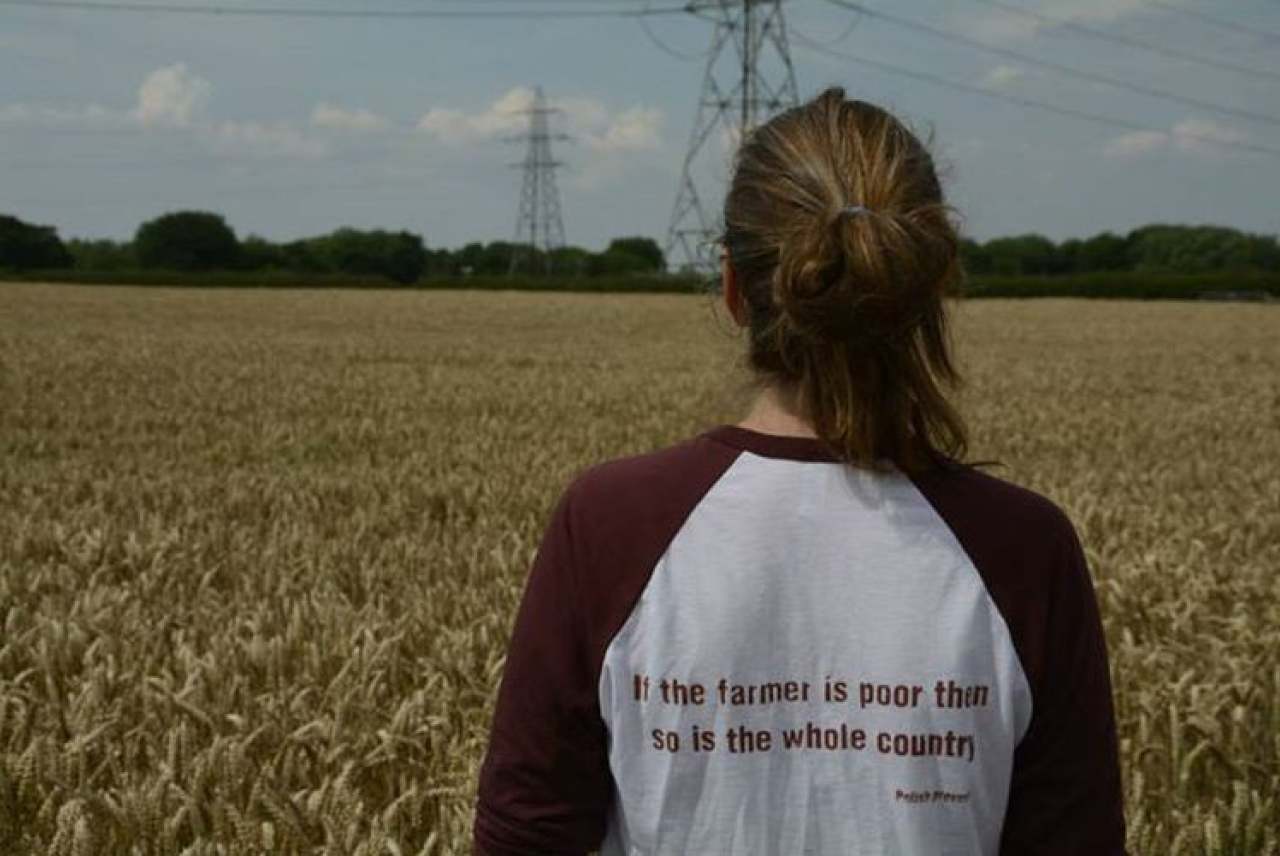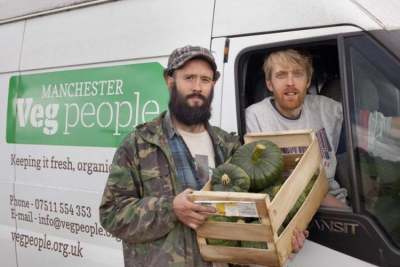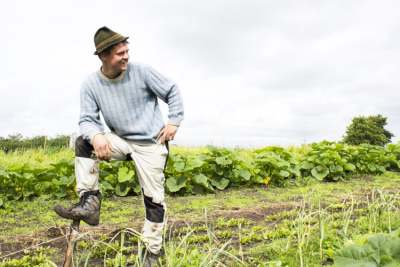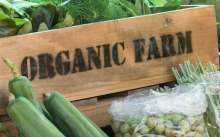Back in 2009, under the banner ‘Feeding Manchester’, Helen and others at the Kindling Trust began talking to a range of people to find out what the barriers were to accessing fresh, local, organic produce. They also asked local food producers about the problems they experienced.
The Kindling team discovered lots of problems. They came up with a load of solutions. They must have worked really hard because they made multiple solutions happen. Today there are five projects all running alongside and supporting each other, forming a sustainable and cohesive response.
Feeding Manchester
Feeding Manchester is an online resource and the ‘one-stop-shop’ for Greater Manchester’s sustainable food movement. Since 2009, there have also been 15 Feeding Manchester gatherings, with people coming together for workshops, discussion groups and presentations. And, of course, to share amazing food.
Manchester Veg People
In 2011, Manchester Veg People, a co-operative of growers, buyers and workers, began trading. It turned the fundamental problem of the low prices typically received by growers on its head by allowing the growers to set the prices in advance.
The buyers, which include local restaurants, schools and the University of Manchester, do crop planning at the end of the year in time for the growers to plant their crops. They specify volumes, and need to be willing to pay the price of what it costs. Growers plant according to demand and harvest to order.
“Then you get super-fresh food,” says Helen.
“It’s not been in storage or unnecessary transit. People absolutely love it.”
According to Helen, this involved facilitating long-term, behavioural change. Buyers could no longer order what they wanted for delivery the next day, but had to sit and plan menus and their buying months in advance, bearing in mind seasonal availability. Also, growers, so used to being treated badly by supermarkets, had to change their mindset and start to account for the real cost of production.
Veg Box People
Veg Box People is a workers’ co-op which is part of Manchester Veg People. It delivers vegetables (in bags) to local collection points.
“The idea came from supplying university staff”, explains Helen. “They started saying that they would like to take the produce home.”
The initial pilot project was set up based on the Growing Communities model in London, with collection points.
“We do seasonal tasting sessions, a newsletter with recipes, take people out harvesting, do walks,” says Helen. “We invite people to farms. It’s not just about getting weekly veg, it’s about having a connection with growers. Also, meeting people at the collection points – getting people to engage. It’s not just about a different way of buying your veg but allowing people to be part of a wider system change in the food system.”



